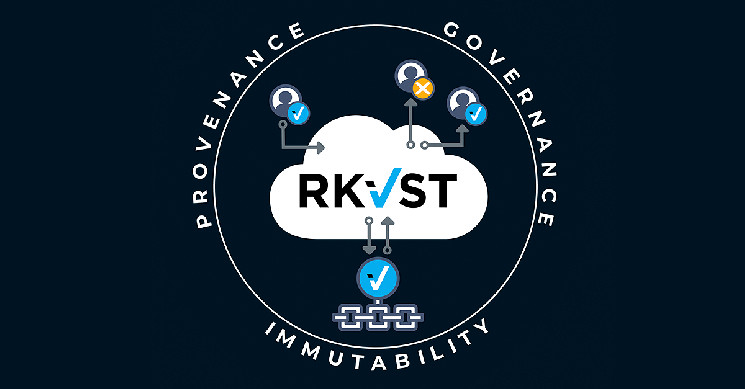Blockchain
The increasing volume of transaction data poses substantial storage issues, and RKVST has just been granted a patent that might revolutionize the blockchain industry. By addressing these problems head-on, RKVST hopes to enhance blockchain’s scalability, performance, availability, and cost-effectiveness.
In recent years, blockchain and distributed ledger technology (DLT) have become integral parts of cutting-edge online communication systems. Beyond cryptocurrencies and NFTs, the safe storage, exchange, and calculation of data inside a shared responsibility system have far-reaching ramifications. Supply chain management, environmental efforts, social and governance implementation (ESG), the Internet of Things (IoT), regulatory compliance, and auditing are just some of the many areas where these technologies might be useful.
The amount of data created by blockchains rises as they record and track a series of transactions, calling for more space to store it. Since data stored on a blockchain cannot be altered later, there will always be a need to keep copies of it. These difficulties create roadblocks for efficiency, effectiveness, scalability, and performance.
Details of the new development
The recently patented Data Structure Storage Optimization, developed by inventors Jon Geater and Mansoor Ahmed-Rengers, offers a fresh approach to storing chain data in a flexible manner without compromising end-to-end cryptographic verifiability. The rising expenses of data management are a major issue, and this creative approach helps alleviate those worries.
RKVST is committed to making blockchain technology practical for real-world commercial applications, as stated by co-founder and chief product officer Jon Geater. Supply chain management may benefit greatly from RKVST’s blockchain-powered platform since it allows for the verification of data origin, provenance, and validity. In his talk, Geater underlined how the patented technology’s implementation allows for portable data integrity, transparency, and long-term trust without adding to the burden of increased operational overheads.
Although current approaches try to address the blockchain storage problem by using block compression and other space-saving strategies, these solutions are really band-aids. Problems with storage tend to arise again. The invention by RKVST might have far-reaching effects, improving scalability and efficiency dramatically and hastening the general adoption of blockchain technology for use in corporate applications.
To ensure the trustworthiness of information shared between businesses, RKVST was established with the intention of doing away with the laborious, costly, and prone-to-error procedures associated with such activities. To quickly and safely confirm the legitimacy of digital assets, you may use the RKVST API.

